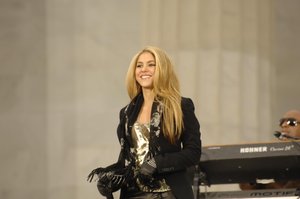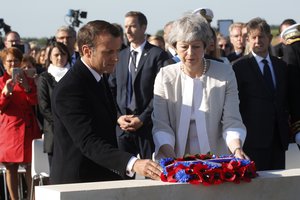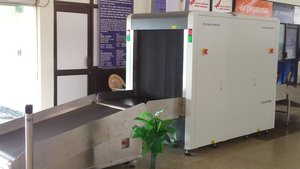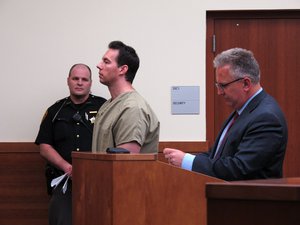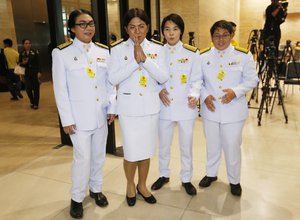Papa (song)
"Papa" is a song written by Stephen Poliakoff and Adrian Johnston for the BBC drama Gideon's Daughter. The song is originally sung by Emily Blunt's character Natasha (and is occasionally referred to as Natasha's song) to her father (played by Bill Nighy) during a performance at her school. The performance features vocals with flamenco style acoustic/classical guitar accompaniment by renowned classical guitarist Georgina Whitehead. The song, which forms a pivotal part of the story in Gideon's Daughter, was inspired by the tragic life and writings of Marie-Georges Simenon (Marie-Jo), daughter of the novelist Georges Simenon, who committed suicide by shooting herself at the age of 25.
Lyrics
I see you from my window
Walking with her there
I don't need to know which number
I won't stop you touch her hair
I don't need to see you waving
When you slip away at night
I don't have to know what happened
As you crawl back when it's light
[Not in film: I don't need you to look at me
And tell me how many hundreds there have been
I don't want to have to listen
As they fall a constant stream]
I don't need to catch you with them
Your voice so full of joy
As you murmur your little nothings
My own Papa so very coy
Papa (surname)
Papa is a surname which may refer to:

Papa (2012 film)
Papa (Hangul: 파파; RR: Papa) is a 2012 South Korean comedy-drama film written and directed by Han Ji-seung. Park Yong-woo stars as a talent manager who persuades his step-daughter from a contract marriage, played by Go Ara, to audition for a reality TV show in the United States.
Go Ara was nominated for Best New Actress at the 48th Baeksang Arts Awards, the 21st Buil Film Awards, and the 33rd Blue Dragon Film Awards in 2012.
Plot
Choon-sub (Park Yong-woo) is a talent manager from South Korea who flies to America to chase after his client who ran away with another manager. He soon learns that she is with child and would be unable to pursue her career. To avoid returning to Korea and face his boss, he gets a residency permit through a contract marriage with a Korean-American woman. When his wife dies in a car accident, he is left with her 6 children, all of different races, from her previous marriages. He discovers that the eldest daughter, June (Go Ara), is a talented singer and dancer. Now in need of money, he convinces her to take part in a reality TV show contest. Because the children need Choon-sub to keep the family together and not be relocated to different homes, June agrees.

Thomas Say
Thomas Say (June 27, 1787—October 10, 1834) was an American entomologist and conchologist. His definitive studies of insects and shells, numerous contributions to scientific journals, and scientific expeditions to Florida, Georgia, the Rocky Mountains, Mexico, and elsewhere made him an internationally-known naturalist. Say has been called the father of American descriptive entomology and American conchology. He served as librarian for the Academy of Natural Sciences of Philadelphia, curator at the American Philosophical Society, and professor of natural history at the University of Pennsylvania.
Early life and education
Born in Philadelphia into a prominent Quaker family, Thomas Say was the great-grandson of John Bartram, and the great-nephew of William Bartram. His father, Dr. Benjamin Say, was brother-in-law to another Bartram son, Moses Bartram. The Say family had a house, "The Cliffs" at Gray's Ferry, adjoining the Bartram family farms in Kingessing township, Philadelphia County. As a boy, Say often visited the family garden, Bartram's Garden, where he frequently took butterfly and beetle specimens to his great-uncle William.
DATA (band)
DATA were an electronic music band created in the late 1970s by Georg Kajanus, creator of such bands as Eclection, Sailor and Noir (with Tim Dry of the robotic/music duo Tik and Tok). After the break-up of Sailor in the late 1970s, Kajanus decided to experiment with electronic music and formed DATA, together with vocalists Francesca ("Frankie") and Phillipa ("Phil") Boulter, daughters of British singer John Boulter.
The classically orientated title track of DATA’s first album, Opera Electronica, was used as the theme music to the short film, Towers of Babel (1981), which was directed by Jonathan Lewis and starred Anna Quayle and Ken Campbell. Towers of Babel was nominated for a BAFTA award in 1982 and won the Silver Hugo Award for Best Short Film at the Chicago International Film Festival of the same year.
DATA released two more albums, the experimental 2-Time (1983) and the Country & Western-inspired electronica album Elegant Machinery (1985). The title of the last album was the inspiration for the name of Swedish pop synth group, elegant MACHINERY, formerly known as Pole Position.
Data (word)
The word data has generated considerable controversy on if it is a singular, uncountable noun, or should be treated as the plural of the now-rarely-used datum.
Usage in English
In one sense, data is the plural form of datum. Datum actually can also be a count noun with the plural datums (see usage in datum article) that can be used with cardinal numbers (e.g. "80 datums"); data (originally a Latin plural) is not used like a normal count noun with cardinal numbers and can be plural with such plural determiners as these and many or as a singular abstract mass noun with a verb in the singular form. Even when a very small quantity of data is referenced (one number, for example) the phrase piece of data is often used, as opposed to datum. The debate over appropriate usage continues, but "data" as a singular form is far more common.
In English, the word datum is still used in the general sense of "an item given". In cartography, geography, nuclear magnetic resonance and technical drawing it is often used to refer to a single specific reference datum from which distances to all other data are measured. Any measurement or result is a datum, though data point is now far more common.

Data (Star Trek)
Lieutenant Commander Data (/ˈdeɪtə/ DAY-tə) is a character in the fictional Star Trek universe portrayed by actor Brent Spiner. He appears in the television series Star Trek: The Next Generation and the feature films Star Trek Generations, Star Trek: First Contact, Star Trek: Insurrection and Star Trek: Nemesis.
An artificial intelligence and synthetic life form designed and built by Doctor Noonien Soong, Data is a self-aware, sapient, sentient, and anatomically fully functional android who serves as the second officer and chief operations officer aboard the Federation starships USS Enterprise-D and USS Enterprise-E. His positronic brain allows him impressive computational capabilities. Data experienced ongoing difficulties during the early years of his life with understanding various aspects of human behavior and was unable to feel emotion or understand certain human idiosyncrasies, inspiring him to strive for his own humanity. This goal eventually led to the addition of an "emotion chip", also created by Soong, to Data's positronic net. Although Data's endeavor to increase his humanity and desire for human emotional experience is a significant plot point (and source of humor) throughout the series, he consistently shows a nuanced sense of wisdom, sensitivity, and curiosity, garnering immense respect from his peers and colleagues.
Se Pa Pou Dat
Depi mwen tou piti
Se ou menm ké mwen te chwazi
Ou se yon bél melodi
Ki fé'm santi m lan paradi
Tanpri, tranpri wete mwen nan fredi
Tanpri fé'm kado yon ti souri
Chorus:
(Se pa pou dat)
Ma pe chante pou ou
(Se pa pou dat)
Ma pé reve de ou
(Se pa pou dat)
Ma pe chante pou ou, oh, yeah
Depi mwen tou piti
Se ou mem ke m wen te shwasi
Tankou yon sin espri
Wanvayi zantray mwen cheri
Tanpri, tanpri rete mwen nan la ri...
O Tanpri vinn banmwen lavi
(Se pa se dat)
Ma pe chante pou ou
(Se pa pou dat)
Ma pé reve de ou
Ma pé chante pou ou
Jodi-a mwen finn gran
Poutan m'damou mem jan
M pa ka ba on lajan
Men m gen w bel santiman
Ki klere kon diaman
Men pa kite m fé seman
Ou met kwé m sinseman
Lanmou sa la lontan
Wwoo, wooo, yeah
(Se pa pou dat)
Ma pe chante pou ou
(Se pa pou dat)
Ma pé reve de ou
(Se pa pou dat)
Ma pé chante pou ou
Ki jan pou m mande'w
( ma pe ret tan n)
Ki jan pou m prie'w
( ma pé ret tan n)
Depi dat mwen la mape retann
Vinn wete mwen amba la pli
Ma pe retann jounin ( wo, wo)
Jounen wa va ban m min (wo, wo)
Pou mwen mennen w ale
Yon ti kote byen lwen ( wo, wo, wo )
Pou lanmou nou donnen (wo, wo)
Kon bél flé lan seren
Papa (song)
"Papa" is a song written by Stephen Poliakoff and Adrian Johnston for the BBC drama Gideon's Daughter. The song is originally sung by Emily Blunt's character Natasha (and is occasionally referred to as Natasha's song) to her father (played by Bill Nighy) during a performance at her school. The performance features vocals with flamenco style acoustic/classical guitar accompaniment by renowned classical guitarist Georgina Whitehead. The song, which forms a pivotal part of the story in Gideon's Daughter, was inspired by the tragic life and writings of Marie-Georges Simenon (Marie-Jo), daughter of the novelist Georges Simenon, who committed suicide by shooting herself at the age of 25.
Lyrics
I see you from my window
Walking with her there
I don't need to know which number
I won't stop you touch her hair
I don't need to see you waving
When you slip away at night
I don't have to know what happened
As you crawl back when it's light
[Not in film: I don't need you to look at me
And tell me how many hundreds there have been
I don't want to have to listen
As they fall a constant stream]
I don't need to catch you with them
Your voice so full of joy
As you murmur your little nothings
My own Papa so very coy
Latest News for: say papa data
NZ celebrates incomplete democracy
- 1
Article Search
Most Viewed
The Himalayan | 06 Jun 2019
The Times of India | 06 Jun 2019
The Guardian | 06 Jun 2019
The Independent | 06 Jun 2019
The Independent | 06 Jun 2019
This is Money | 06 Jun 2019

























